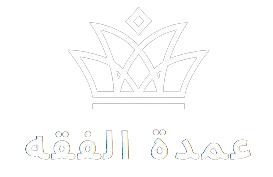Importance of Prayer & Ruling of its Abandonment
Adhan and Iqamah
Conditions of Salah
Covering the 'Awrah
Physical Purity for Salah
Facing the Qiblah & Intention in the Prayer
Etiquettes of Walking to Prayer and its Description
Description of Prayer Continued
Description of Prayer Continued
Description of Prayer Continued
Pillars and Mandatory Acts of Prayer
Two Prostrations of Forgetfulness
Supererogatory (Voluntary) Prayers
Supererogatory (Voluntary) Prayers Continued
Times of Prohibition of (Supererogatory) Prayer
Chapter on Imamate
Chapter on Imamate Continued
Congregational Prayers & Latecomers
Prayer of The Sick
Prayer of The Traveler
Prayer of Fear
Jumu'ah (Congregational Friday) Prayer
Jumu'ah (Congregational Friday) Prayer Continued
Prayer of the Two Eids
